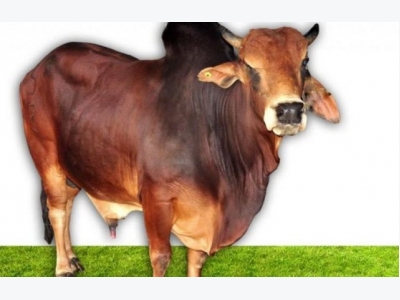Embryo Transfer Technology revolutionises cattle breeding

The programme is implemented with the objective of conservation and development of indigenous breeds under Rashtriya Gokul Mission
Department of Animal husbandry, Dairying and Fisheries in co-operation with 12 States has undertaken a Mass Embryo Transfer programme in Indigenous Breeds under the scheme, National Mission on Bovine Productivity. It has been planned to carry out 440 embryo transfers during October 2-10, 2017 throughout India. The programme is implemented with the objective of conservation and development of indigenous breeds under Rashtriya Gokul Mission, an Agriculture Ministry statement said.
Embryo transfer technology (ETT) has revolutionised the breeding strategies in Bovines as a tool to optimise the genetic improvement in cattle.
Through the use of ETT, (i) a farmer can get a 5-6 fold increase in number of offsprings, (ii) the calves born will be of high genetic merit and (iii) the offsprings born will be free from diseases.
The programme has been initiated in 12 ETT centres across India from 2nd October and will continue till 10th October 2017. Under this programme, embryos of higher genetic merit indigenous bovines are being transferred in to surrogate cows. Embryos of Indigenous cattle breeds such as Sahiwal, Gir, Red Sindhi, Ongole, Deoni and Vechur have been proposed to be transferred under this programme. On first day of ETT programme held on 2nd October, as many as 35 of embryos were transferred in to recipients. Remaining will be transferred on different days till the end of the ongoing ETT programme, the statement further said.
The technology now being taken up to the doorstep of the farmers will result in rapid propogation of high genetic merit indigenous cattle.
The EET programme is expected to create a pool of high productive breed of bovine which in turn help farmers get better productivity and increased income. The organised dairy sector, procuring milk from farmers, can get benefited from the programme. It would help boost the overall economic activities in the rural areas.
Related news
 2 more lactations with healthy dry cows
2 more lactations with healthy dry cows These problems include milk fever, ketosis and metritis and are a direct result of shortcomings in dry cow management.
 Combatting inefficient nitrogen use in dairy cows
Combatting inefficient nitrogen use in dairy cows Feed efficiency is more than ever a concern on farms to allow animals to meet their genetic potential and to maximise farm profitability.
 Manage grazing behavior
Manage grazing behavior Following are six tips for managing grassland resources that might modify grazing behavior of cattle in productive ways.